Escaping Polygamy
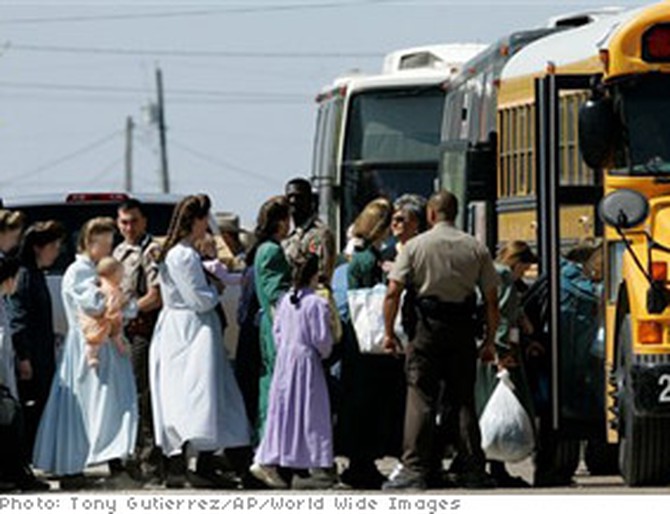
On March 29, 2008, "Sarah," a girl who said she was 16-years-old, called a local shelter and claimed she was being abused by her husband, a 50-year-old man who is also the father of her eight-month-old child.
Days after the call, heavily armed authorities raided a polygamist community in rural Eldorado, Texas. After six days on the isolated property, state child protective services removed more than 460 children from their homes. More than 100 women presumed to be their mothers went with them. Of the more than 50 girls believed to be between the ages of 14 and 17, authorities say 31 were pregnant or had given birth.
More than 6,000 people are thought to be members of the Fundamentalist Church of Jesus Christ of Latter Day Saints, or FLDS. This religious sect believes the practice of polygamy will bring them true and lasting salvation.
In Texas, the children removed from the compound remain in state custody as the investigation continues.
Days after the call, heavily armed authorities raided a polygamist community in rural Eldorado, Texas. After six days on the isolated property, state child protective services removed more than 460 children from their homes. More than 100 women presumed to be their mothers went with them. Of the more than 50 girls believed to be between the ages of 14 and 17, authorities say 31 were pregnant or had given birth.
More than 6,000 people are thought to be members of the Fundamentalist Church of Jesus Christ of Latter Day Saints, or FLDS. This religious sect believes the practice of polygamy will bring them true and lasting salvation.
In Texas, the children removed from the compound remain in state custody as the investigation continues.
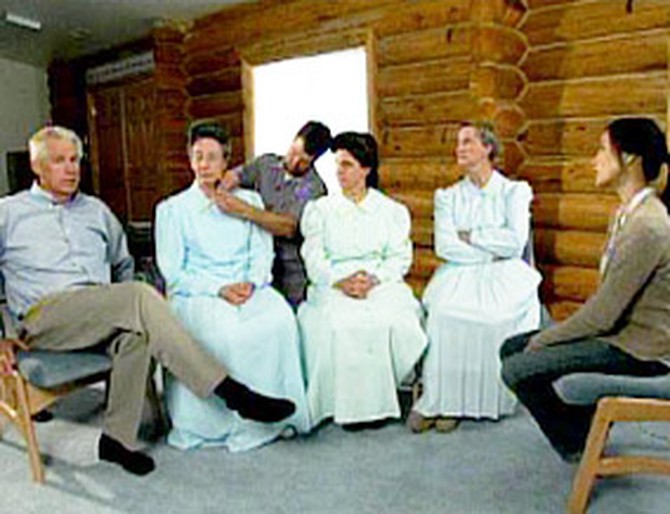
Shortly after the raid, Oprah Show correspondent Lisa Ling traveled to Central Texas. After two days of waiting and hours of tense cell phone discussions, Lisa and the producers are allowed access to the compound and brought to a house where three women wait to speak with her. Two attorneys stand nearby, monitoring Lisa's questions and the women's answers.
The women say Child Welfare Investigators and SWAT teams armed with full ammunition and tanks took their children by force. "They took them from us with guns," one woman says. Collectively, the three women have 14 children.
In talking to Lisa, the women hope to dispel some misperceptions about their community. When asked about teenage girls being forced to marry older men, the women say there's no reason for concern and that the girl could refuse if she didn't want to marry. "They are actually well taken care of. They're not abused, especially the young ones," one of the women says.
As far as the allegation that has sparked so much controversy and heartache, one of the women has strong words about the call that she says may not even be legitimate. "It's appalling to me that they would do this to a community from a phone call. … That they would disrupt so many lives and say that it was in the interest of the children. That is the biggest farce I have ever heard in my entire life."
The women say Child Welfare Investigators and SWAT teams armed with full ammunition and tanks took their children by force. "They took them from us with guns," one woman says. Collectively, the three women have 14 children.
In talking to Lisa, the women hope to dispel some misperceptions about their community. When asked about teenage girls being forced to marry older men, the women say there's no reason for concern and that the girl could refuse if she didn't want to marry. "They are actually well taken care of. They're not abused, especially the young ones," one of the women says.
As far as the allegation that has sparked so much controversy and heartache, one of the women has strong words about the call that she says may not even be legitimate. "It's appalling to me that they would do this to a community from a phone call. … That they would disrupt so many lives and say that it was in the interest of the children. That is the biggest farce I have ever heard in my entire life."

Lisa says she felt the women she interviewed were very candid with her. "They never denied that girls were married to much older men. And more than anything, they were truly pretty devastated that their children were taken away from them," Lisa says.
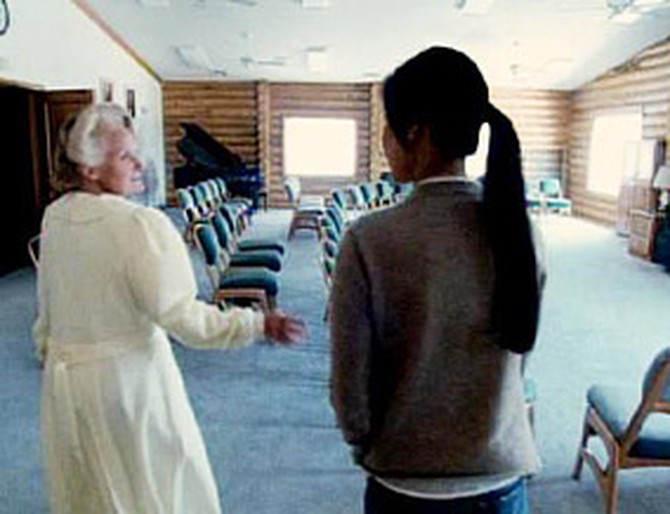
While on the compound, the attorneys arranged for Lisa to get a house tour from a woman named Sarah—with one stipulation: Lisa could not ask Sarah any personal questions.
Sarah's home is one of the many huge, log cabin-style homes standing throughout the compound. Lisa is first struck by a sprawling living room and the dining room. The bedrooms are located in a maze-like series of hallways. Each bedroom has multiple beds. When asked how many children live in the home, Sarah can only say "lots."
Adorning the walls are photographs of Warren Jeffs, whom Lisa says the community still considers their leader even though he is in prison. "The homes are very sort of sparse. It's all kind of this muted gray, gray-blue color carpeting, and there are no photographs on the wall except for those of the prophet," Lisa says. "What was unusual for me is that Warren Jeffs, in the outside world, he's a convicted criminal. He's serving time in prison. Yet his photograph was everywhere, including in all of the children's bedrooms."
Sarah's home is one of the many huge, log cabin-style homes standing throughout the compound. Lisa is first struck by a sprawling living room and the dining room. The bedrooms are located in a maze-like series of hallways. Each bedroom has multiple beds. When asked how many children live in the home, Sarah can only say "lots."
Adorning the walls are photographs of Warren Jeffs, whom Lisa says the community still considers their leader even though he is in prison. "The homes are very sort of sparse. It's all kind of this muted gray, gray-blue color carpeting, and there are no photographs on the wall except for those of the prophet," Lisa says. "What was unusual for me is that Warren Jeffs, in the outside world, he's a convicted criminal. He's serving time in prison. Yet his photograph was everywhere, including in all of the children's bedrooms."
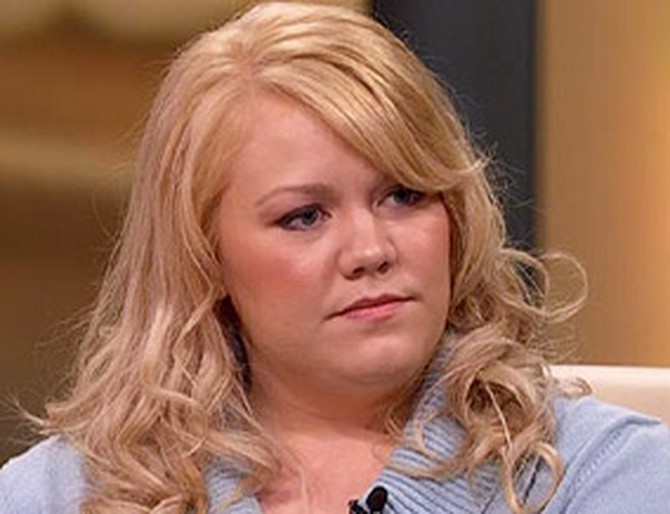
When Elissa Wall escaped Warren Jeffs's polygamous community at the age of 17, she had no idea she would help bring down the man she once recognized as her prophet. During the trial, Elissa was known to the world only as Jane Doe IV, one of the women who testified against Jeffs. He was convicted on two counts of accomplice to rape in September 2007.
In April 2008, authorities needed Elissa's help again. Investigators asked Elissa to return to the FLDS compound in Eldorado to help them communicate with the frightened women and children. "It is a very different culture than people even realize," Elissa says. "They have different meanings to different words, and they use completely different words that people here would not have a concept of an understanding for."
Elissa says the events that unfolded happened very differently than some people are portraying. "[Law enforcement] went in very, very carefully and very kind. They did everything they possibly could to be kind and respectful to the people."
Back at her old home, Elissa says she recognized some of the women and understands why they would feel deceived. "It's very hard for the women to understand. Many of them don't have a concept for abuse," Elissa says. "In their eyes, they don't feel abused. So, yeah, some of them felt like they were lied to. Some of them felt like it was forced."
Elissa says she also saw young, pregnant girls. "It was hard to see that they continue to condone the young, young, young marriages and pregnancies," she says. "They honestly do believe that they are taken care of. A girl's greatest goal in that culture is to be married, no matter the age."
In April 2008, authorities needed Elissa's help again. Investigators asked Elissa to return to the FLDS compound in Eldorado to help them communicate with the frightened women and children. "It is a very different culture than people even realize," Elissa says. "They have different meanings to different words, and they use completely different words that people here would not have a concept of an understanding for."
Elissa says the events that unfolded happened very differently than some people are portraying. "[Law enforcement] went in very, very carefully and very kind. They did everything they possibly could to be kind and respectful to the people."
Back at her old home, Elissa says she recognized some of the women and understands why they would feel deceived. "It's very hard for the women to understand. Many of them don't have a concept for abuse," Elissa says. "In their eyes, they don't feel abused. So, yeah, some of them felt like they were lied to. Some of them felt like it was forced."
Elissa says she also saw young, pregnant girls. "It was hard to see that they continue to condone the young, young, young marriages and pregnancies," she says. "They honestly do believe that they are taken care of. A girl's greatest goal in that culture is to be married, no matter the age."
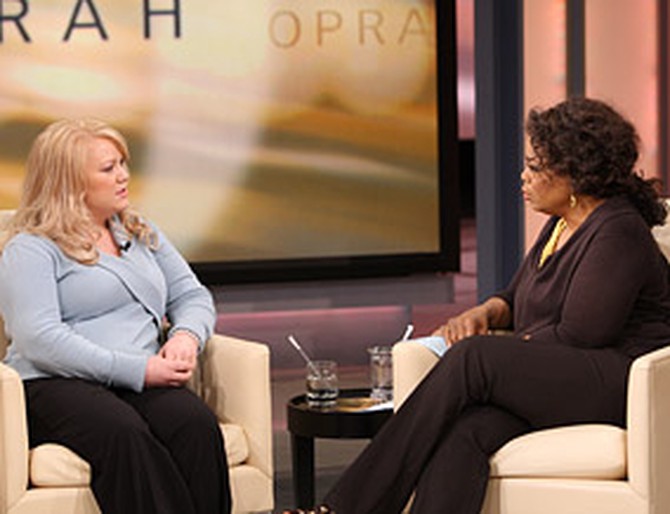
Elissa is now sharing the story of her life in a new book Stolen Innocence . At only age 14, Elissa was told to marry her 19-year-old cousin Allen. "At first, I was shocked. There was many girls older than myself that were in [my] family, and it was very shocking," she says.
The marriage had been arranged without Elissa's consent. "The people who are actually in the marriage do not decide for themselves," she says. "Someone acting on the prophet, who they call the leader, on his behalf, is the one who arranges the marriages and decides who goes with who."
Elissa says she petitioned her church leaders, Warren Jeffs and the prophet at the time to delay the marriage several times. "I asked them if they could wait. I wanted at least two years to grow up," she says. "When I later found out who I was to be married to, who was my cousin, that really upset me, and that's also one thing I begged them is that they could at least find someone else for me to marry other than my cousin."
The marriage had been arranged without Elissa's consent. "The people who are actually in the marriage do not decide for themselves," she says. "Someone acting on the prophet, who they call the leader, on his behalf, is the one who arranges the marriages and decides who goes with who."
Elissa says she petitioned her church leaders, Warren Jeffs and the prophet at the time to delay the marriage several times. "I asked them if they could wait. I wanted at least two years to grow up," she says. "When I later found out who I was to be married to, who was my cousin, that really upset me, and that's also one thing I begged them is that they could at least find someone else for me to marry other than my cousin."
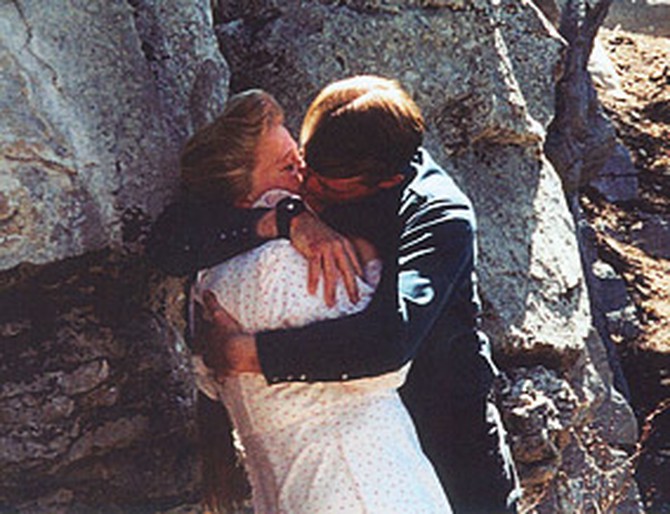
At the time Elissa married, she says she thought beds were only meant for sleeping and didn't know anything about sex. "I was like many, many girls from there. They don't teach a sexual knowledge. They don't teach you human anatomy," she says. In fact, Elissa says it's often up to the husband to teach a woman about sex.
Elissa says she was so uncomfortable with physical contact she refused to kiss her husband on their honeymoon, a group road trip with other couples who were married the same day. "Most of the girls didn't know their husband beforehand, so it's kind of a get to know one another," she says. Elissa says the other couples dared her cousin to kiss her while they took a picture. "Allen just grabbed me one day and just brought me in for a kiss. Even as I look at it today, it hurts me to see that I was so uncomfortable. I was blocking him with both my arms to push him away."
Elissa says her marriage was not consummated on her wedding night, but she cried and shook with fear the night it did happen. "It was very traumatic, coming from a very innocent mind where I knew nothing of even the anatomy of my own body," she says. "[My husband] told me that that was the prophet's and God's will, that this was his job and right as a husband of mine."
Talking about sex outside the marriage was taboo, Elissa says, so she couldn't share her fears with anyone—including her fears about having a child with birth defects. "I didn't know a whole lot. I just knew that it was not very good for people to marry that close," she says. But Elissa says there is not concerned about close marriages producing children with birth defects because the marriages are considered arranged by the prophet and God's will. "They look at it as a child who was so special he had to come to earth," Elissa says.
Elissa's former husband, Allen Steed, has been charged with one count of rape. When contacted, his attorney issued a statement saying Allen has pled not guilty and is contesting all charges. He is anticipating a trial.
Elissa says she was so uncomfortable with physical contact she refused to kiss her husband on their honeymoon, a group road trip with other couples who were married the same day. "Most of the girls didn't know their husband beforehand, so it's kind of a get to know one another," she says. Elissa says the other couples dared her cousin to kiss her while they took a picture. "Allen just grabbed me one day and just brought me in for a kiss. Even as I look at it today, it hurts me to see that I was so uncomfortable. I was blocking him with both my arms to push him away."
Elissa says her marriage was not consummated on her wedding night, but she cried and shook with fear the night it did happen. "It was very traumatic, coming from a very innocent mind where I knew nothing of even the anatomy of my own body," she says. "[My husband] told me that that was the prophet's and God's will, that this was his job and right as a husband of mine."
Talking about sex outside the marriage was taboo, Elissa says, so she couldn't share her fears with anyone—including her fears about having a child with birth defects. "I didn't know a whole lot. I just knew that it was not very good for people to marry that close," she says. But Elissa says there is not concerned about close marriages producing children with birth defects because the marriages are considered arranged by the prophet and God's will. "They look at it as a child who was so special he had to come to earth," Elissa says.
Elissa's former husband, Allen Steed, has been charged with one count of rape. When contacted, his attorney issued a statement saying Allen has pled not guilty and is contesting all charges. He is anticipating a trial.
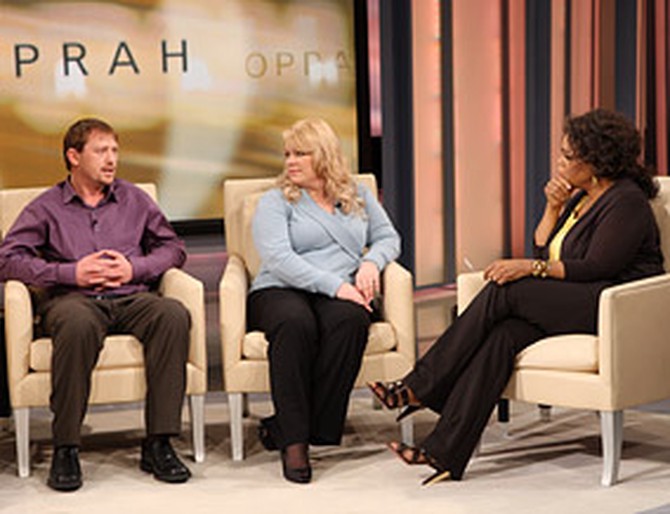
At 17, Elissa escaped her marriage and the sect with her then-boyfriend, Lamont. Today, Elissa and Lamont are married with two children. Elissa says meeting Lamont was a miracle. "I had been married for a while, and it had been a very hard couple of years. It had gotten to a point where I would sleep in my vehicle," she says.
Elissa was living in an FLDS community in southern Utah surrounded by stretches of desert. "One wintry, cold night, [Lamont] helped me change a tire out in the middle of nowhere, and he started to kind of investigate my situation," she says. "It was a friendship for a long time… it was fate. It was a higher power working in my life to answer my prayers."
Lamont says he doesn't judge polygamists for believing in plural marriage as part of their religion. What he does oppose, however, is forcing young girls into marriage. "Where the problem comes in is when you're abusing and forcing girls that are definitely not old enough to make the choice for themselves into a plural relationship, and then you try to hide that relationship," Lamont says.
Elissa was living in an FLDS community in southern Utah surrounded by stretches of desert. "One wintry, cold night, [Lamont] helped me change a tire out in the middle of nowhere, and he started to kind of investigate my situation," she says. "It was a friendship for a long time… it was fate. It was a higher power working in my life to answer my prayers."
Lamont says he doesn't judge polygamists for believing in plural marriage as part of their religion. What he does oppose, however, is forcing young girls into marriage. "Where the problem comes in is when you're abusing and forcing girls that are definitely not old enough to make the choice for themselves into a plural relationship, and then you try to hide that relationship," Lamont says.
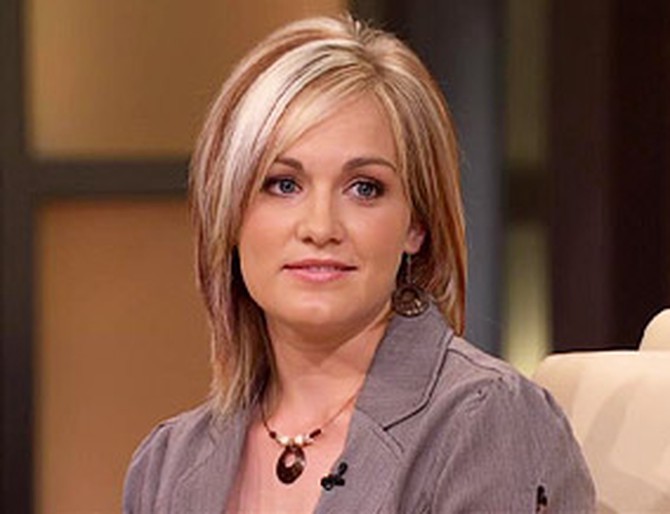
Elissa's sister, Teressa, also escaped from a polygamist compound and testified with Elissa in the trial against Jeffs. Although they grew up together, Elissa and Teressa had different experiences. When Teressa was 14 years old, she was sent to Bountiful, Canada, to work in a logging mill. Teressa says she worked at the mill until she got married at 17. Eventually, she was able to escape with her children. "I was extremely unhappy being there, but the biggest drive for me to leave was my three kids," she says. "I didn't want my two girls going through what my sister did. I didn't want them getting married at a young age, and I wanted them to have the education that kids don't get there."
Along with her freedom came a new lifestyle that Teressa says she and her children had to adjust to. "It's like taking someone from Mars and sticking them in the real world and say, 'Okay, live,'" Teresa says. Some of the adjustments Teressa made can clearly be seen, like her new hairstyle. "Cutting one's hair is huge," Lisa says. "Once a woman cuts her hair, she is no longer welcomed back in the community."
Along with her freedom came a new lifestyle that Teressa says she and her children had to adjust to. "It's like taking someone from Mars and sticking them in the real world and say, 'Okay, live,'" Teresa says. Some of the adjustments Teressa made can clearly be seen, like her new hairstyle. "Cutting one's hair is huge," Lisa says. "Once a woman cuts her hair, she is no longer welcomed back in the community."
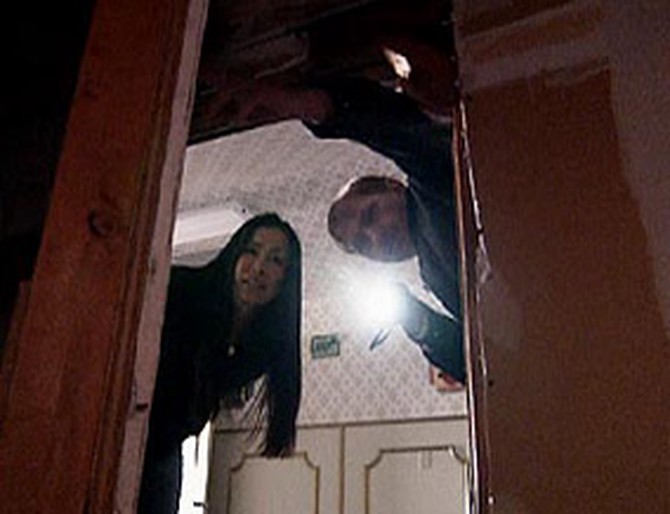
Elissa, Teressa, and Lamont all attended a private polygamous school run by principal Jeffs. Lamont gives Lisa a tour of the abandoned ALTA Academy, where access was forbidden by outsiders. "It's hard to describe, but we all felt a dark presence walking through the maze of rooms," Lisa says.
Elissa says her education at ALTA Academy was very different from a traditional public school. "They have their basics—mathematics, spelling," she says. "But it's mostly a religious education." The curriculum, designed by Jeffs, had many obvious holes in the lesson plan: History class stopped at the Constitution, no one ever walked on the moon and dinosaurs never existed. "They have their own history, even as far as government history [and] world history," Elissa says. "They teach nothing of evolution."
Lamont says the science books were also doctored so that parts of the human anatomy were covered. "They would just cut little pieces of paper and stick it over the private areas even if there wasn't a private area there just to make a point."
Elissa says her education at ALTA Academy was very different from a traditional public school. "They have their basics—mathematics, spelling," she says. "But it's mostly a religious education." The curriculum, designed by Jeffs, had many obvious holes in the lesson plan: History class stopped at the Constitution, no one ever walked on the moon and dinosaurs never existed. "They have their own history, even as far as government history [and] world history," Elissa says. "They teach nothing of evolution."
Lamont says the science books were also doctored so that parts of the human anatomy were covered. "They would just cut little pieces of paper and stick it over the private areas even if there wasn't a private area there just to make a point."
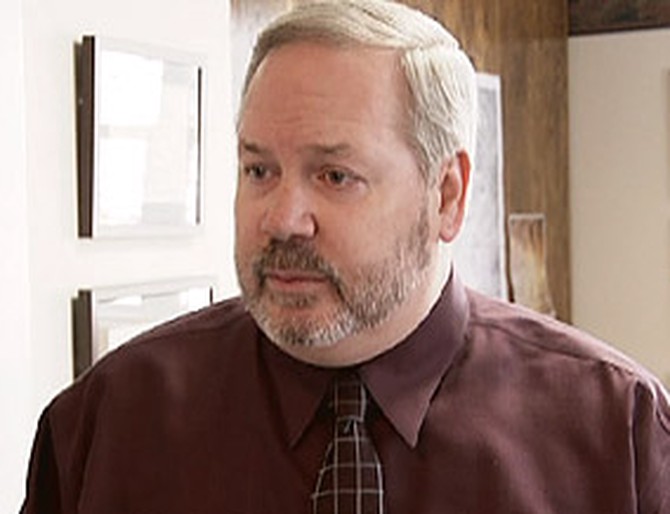
For members of the FLDS who want out, there is a network whispered about among the polygamist communities. Roger Hoole, an attorney, is seen as someone who can help or harm—depending on who you ask.
"I really am considered to be evil by most of those people," he says. "But the good side is that they know that there are people out here who are willing to help them if they'll make the first step. We will do our best to gather them up and help them get back on their feet and start a new life."
"I really am considered to be evil by most of those people," he says. "But the good side is that they know that there are people out here who are willing to help them if they'll make the first step. We will do our best to gather them up and help them get back on their feet and start a new life."
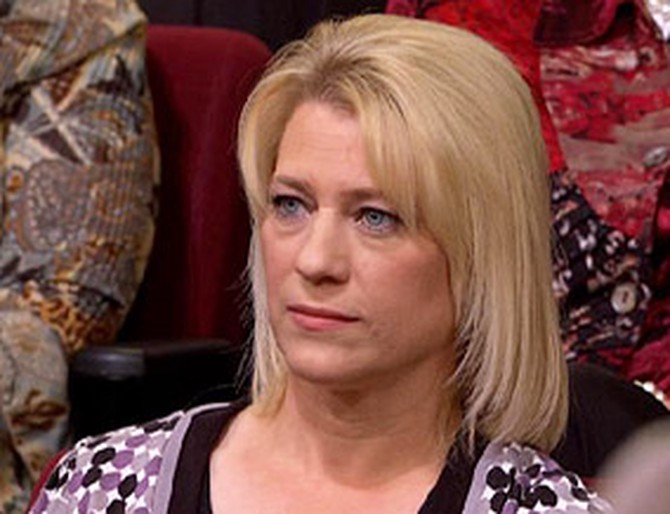
Jorjina is one of the women Roger has helped flee the polygamist lifestyle in Colorado City, Arizona. Jorjina's polygamist marriage started when she was 18 years old, when a husband was chosen for her.
Jorjina's daughter Hilary was about to turn 14, and she feared Hilary would be married off.
Jorjina's daughter Hilary was about to turn 14, and she feared Hilary would be married off.
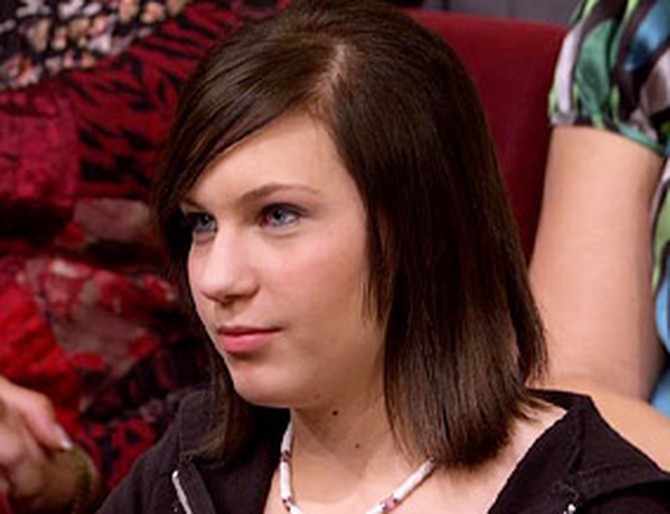
Hilary says she begged her mother to escape before it was too late. "I said it would be like our last chance to get out, or I would get married and she'd just go back home and she'd probably never see me again," she says.
Jorjina says she thinks she made the right choice by leaving. "I don't feel like that it's right for a girl that's 14, even 13, to be married."
Jorjina says she thinks she made the right choice by leaving. "I don't feel like that it's right for a girl that's 14, even 13, to be married."
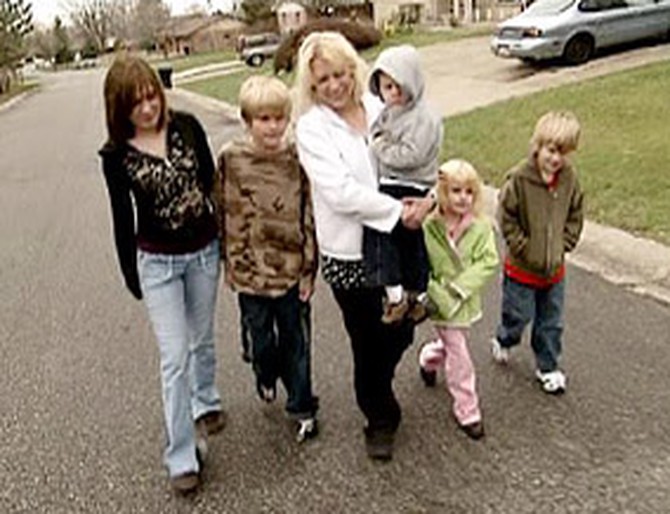
Since leaving Colorado City, Jorjina's life has changed dramatically. "She's now supporting seven children," Lisa says. "It's a huge, huge cultural shift and transition."
Although her new life as a single mom has not been easy, Jorjina says she does not regret leaving. "There's some good memories, and there's a lot of bad memories," she says. "I don't want to go back to it. There's nothing there."
Although her new life as a single mom has not been easy, Jorjina says she does not regret leaving. "There's some good memories, and there's a lot of bad memories," she says. "I don't want to go back to it. There's nothing there."
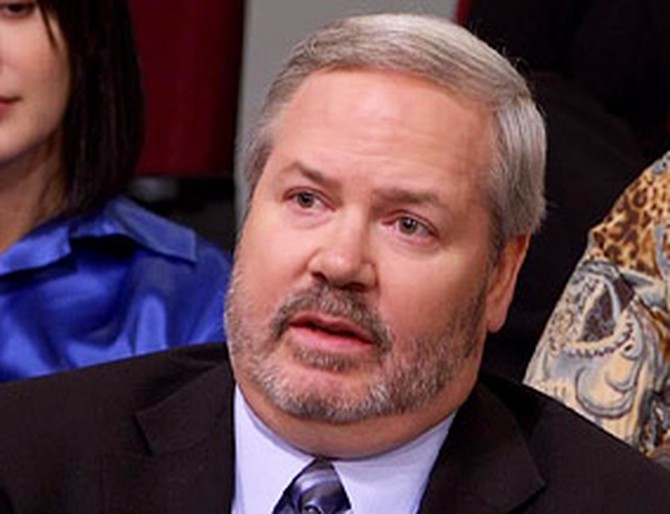
Is the FLDS a cult? "Out of respect for the sincere religious beliefs of the people, I don't usually refer to it as a cult," Roger says. "But it really does meet every definition of a cult—minds are controlled, information is not given to them. They're told what to believe; they're told what choices to make—and they are not free to leave."
In the midst of confusion from the raid and a media frenzy still in progress, Elissa has hopes for a positive ending. "I hope that there is a change made," she says. "It will be tough, and so many people, especially the women, are going through a very hard time right now. I understand where their mind is and the pain that it is. But I hope that all of them can see that it is your girl's right to grow up. It is her God-given right to be a child, and to take that from them is wrong. And I hope to see that there will be girls spared a very sad experience and that we can see a change."
In the midst of confusion from the raid and a media frenzy still in progress, Elissa has hopes for a positive ending. "I hope that there is a change made," she says. "It will be tough, and so many people, especially the women, are going through a very hard time right now. I understand where their mind is and the pain that it is. But I hope that all of them can see that it is your girl's right to grow up. It is her God-given right to be a child, and to take that from them is wrong. And I hope to see that there will be girls spared a very sad experience and that we can see a change."
Published 05/29/2008

